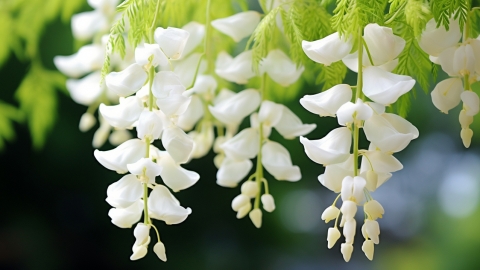Can patients with eczema eat locust flowers?
Whether patients with eczema can eat locust flowers mainly depends on whether the patient is allergic to locust flowers. If not allergic, they can generally consume them in moderation. However, if allergic, they should not consume them. Detailed explanation is as follows:

If a patient has previously consumed locust flowers or similar foods without experiencing an allergic reaction and their eczema condition is currently stable without being in an acute flare-up phase, then moderate consumption of locust flowers may be safe. Locust flowers are rich in vitamin C and various trace elements, and moderate consumption may benefit the immune system, thereby indirectly helping control eczema without worsening the condition.
However, if the patient is allergic to locust flowers, consumption may trigger or worsen allergic reactions, leading to exacerbated eczema symptoms such as skin itching, redness, increased papules, or even blisters and exudation. Patients with these allergies should avoid consuming locust flowers.
During the recovery period, patients are advised to eat more fruits and vegetables rich in vitamins, such as spinach, Chinese cabbage, and apples. They should also avoid eating irritating foods such as shrimp, crab, spicy or greasy foods, which may increase dampness and heat and worsen symptoms.




